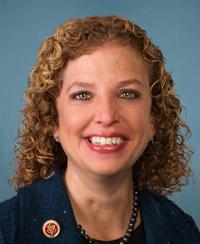0
Elijah E. Cummings Lower Drug Costs Now Act
5/11/2023, 3:45 PM
Summary of Bill HR 3
The main provisions of the bill include allowing the government to negotiate drug prices with pharmaceutical companies for Medicare, which currently is prohibited by law. This negotiation would aim to lower the costs of prescription drugs for Medicare beneficiaries and save the government money on healthcare spending.
Additionally, the bill would cap out-of-pocket costs for Medicare beneficiaries at $2,000 per year and require drug companies to provide rebates to Medicare if their prices increase faster than inflation. It also includes measures to increase transparency in drug pricing and prevent price gouging by pharmaceutical companies. Overall, the Elijah E. Cummings Lower Drug Costs Now Act seeks to address the rising costs of prescription drugs in the United States and make healthcare more affordable for all Americans. It has received support from Democrats in Congress, but has faced opposition from some Republicans and pharmaceutical companies. The bill is currently being debated and discussed in Congress as lawmakers work towards finding a solution to the issue of high drug prices.
Congressional Summary of HR 3
Elijah E. Cummings Lower Drug Costs Now Act
This bill establishes several programs and requirements relating to the prices of prescription drugs.
In particular, the bill requires the Department of Health and Human Services (HHS) to negotiate prices for certain drugs (current law prohibits HHS from doing so). Specifically, HHS must negotiate maximum prices for single-source, brand-name drugs that lack certain generics and that are among either the 125 drugs that account for the greatest national spending or the 125 drugs that account for the greatest Medicare spending. HHS must negotiate the prices of at least 25 such drugs for 2024 and of at least 50 such drugs thereafter and must also negotiate prices for certain newly approved drugs and for insulin products. The negotiated prices must be offered under Medicare and may also be offered under private health insurance unless the insurer opts out.
The negotiated maximum price may not exceed (1) 120% of the average price in Australia, Canada, France, Germany, Japan, and the United Kingdom; or (2) if such information is not available, 85% of the U.S. average manufacturer price. Drug manufacturers that fail to comply with the bill's negotiation requirements are subject to civil and tax penalties.
The bill also makes a series of additional changes to Medicare prescription drug coverage and pricing, including by (1) requiring drug manufacturers to issue rebates to the Centers for Medicare & Medicaid Services for covered drugs that cost $100 or more and for which the average manufacturer price increases faster than inflation, and (2) capping annual out-of-pocket spending under the Medicare prescription drug benefit.
The bill also requires drug manufacturers to report specified information for certain high-cost drugs, and it provides funds for opioid epidemic initiatives and biomedical research.




